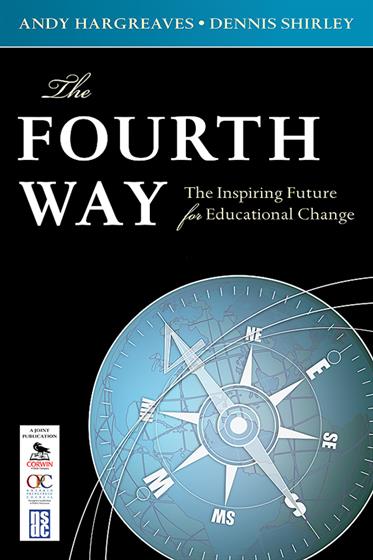Quote by Neil MacNeill, Principal, Ellenbrook Primary School, WA, Australia:
Change in schools is generally not well done. Principals and school boards often are so impacted by the press of the present that they cannot see the "big," strategic picture, so they resort to the few well-tried strategies that have served them well in the past. Andy Hargreaves is a highly credible researcher on change in education. In this book, he joins with Dennis Shirley to provide a new, alternative way of re-examining change in schools.
The first three change genre are:
1. Innovation and inconsistency (1945-1975circa) and Complexity and contradiction (1975- late 1980s); 2. The way of the markets and standardisation (to 1995, neoliberalism); and
3. Performance and partnership (1995- present, modified New Public Management).
The authors examined aspects of the first three ways of change and decided what was worth keeping: inspiration, innovation and autonomy (from the First Way); urgency, consistency and all-inclusive equity (from the Second Way) and balance and inclusiveness, public involvement, financial re-investment, better evidence and professional networks (from the Third Way).
Six pillars of purpose and partnership characterise the Fourth Way:
1. An inspiring and inclusive vision;
2. Strong public engagement;
3. Achievement through investment;
4. Corporate educational responsibility;
5. Students as partners in change; and
6. Mindful learning and teaching.
Teacher professionalism, which took a nose-dive in the desperate push towards national standards, is re-asserted in the Fourth Way. Importantly, Hargreaves does not forget the important work that he did on sustainable leadership, and he reminds us of the need for responsibility before accountability.
This book provides a useful sense of direction to everyone imbedded in school change, and it is an important reference for all school leaders.
Change in schools is generally not well done. Principals and school boards often are so impacted by the press of the present that they cannot see the "big," strategic picture, so they resort to the few well-tried strategies that have served them well in the past. Andy Hargreaves is a highly credible researcher on change in education. In this book, he joins with Dennis Shirley to provide a new, alternative way of re-examining change in schools.
The first three change genre are:
1. Innovation and inconsistency (1945-1975circa) and Complexity and contradiction (1975- late 1980s); 2. The way of the markets and standardisation (to 1995, neoliberalism); and
3. Performance and partnership (1995- present, modified New Public Management).
The authors examined aspects of the first three ways of change and decided what was worth keeping: inspiration, innovation and autonomy (from the First Way); urgency, consistency and all-inclusive equity (from the Second Way) and balance and inclusiveness, public involvement, financial re-investment, better evidence and professional networks (from the Third Way).
Six pillars of purpose and partnership characterise the Fourth Way:
1. An inspiring and inclusive vision;
2. Strong public engagement;
3. Achievement through investment;
4. Corporate educational responsibility;
5. Students as partners in change; and
6. Mindful learning and teaching.
Teacher professionalism, which took a nose-dive in the desperate push towards national standards, is re-asserted in the Fourth Way. Importantly, Hargreaves does not forget the important work that he did on sustainable leadership, and he reminds us of the need for responsibility before accountability.
This book provides a useful sense of direction to everyone imbedded in school change, and it is an important reference for all school leaders.
Neil MacNeill, Principal
Ellenbrook Primary School, WA, Australia




